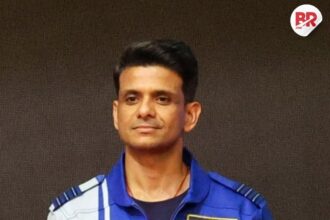
Every morning, India’s river divers show up before sunrise. They carry old bags, some homemade tools, and a lot of hope.
67-year-old Ramu Gupta is one of them. He walks quietly to the Yamuna River in Delhi. The city wakes up, but he’s already inside the water.

He’s looking for coins, bottles, or maybe a gold ring—anything that can be sold in the scrap market.
Holy River, Harsh Life
In Hindu culture, rivers are sacred. People throw coins, flowers, and even jewellery into the water as offerings. Many believe the Yamuna River is home to a goddess.
But beneath those holy waters, the reality is different. The river is dirty. Very dirty. It carries sewage, trash, and sometimes dead bodies.
Yet every day, India’s river divers like Ramu go inside. They dive in without safety gear. No gloves, no shoes. Just faith.
Scrap Over Salary
Ramu earns about ₹5,000 ($58) a month from diving. That’s on top of his regular job as a toilet cleaner.
He works seven days a week, two shifts a day. One shift in the river, one at his day job. He’s done this for 35 years.
Why? “For my grandchildren,” he says.
Another diver, Arvind Kumar, has been doing this for 12 years full-time. He says the daily income is not stable. Sometimes ₹600 a day, sometimes much less.
The minimum wage in Delhi is ₹710 a day. They often don’t reach it.
What They Find
Mostly, it’s coins, bottles, and plastic. But sometimes it’s gold. A chain. A ring. A broken bangle.
Once in a while, they find something darker—a dead body. Then the police call them.
Sometimes they even save lives. People get swept away in the current. If the divers are nearby, they jump in. “Saving someone feels better than finding gold,” says Ramu.
Why They Still Dive
Despite the risk, the dirt, and the poverty, they believe in something bigger.
Ramu says he’s protected by Mata Rani, a Hindu goddess. “If she wants me to live, I’ll live. If not, I’ll die.”
This faith keeps them going. Not just in god, but in life itself.
Why It Matters
India’s river divers are not just workers. They’re survivors. They live on the edge, doing dangerous jobs most people wouldn’t dream of.
And yet, they do it with pride, purpose, and a little bit of hope.
They remind us: even in the filth, there’s dignity. Even in poverty, there’s power.
Also Read Shubhanshu Shukla Returns Safely After 18-Day Mission as First Indian at ISS












